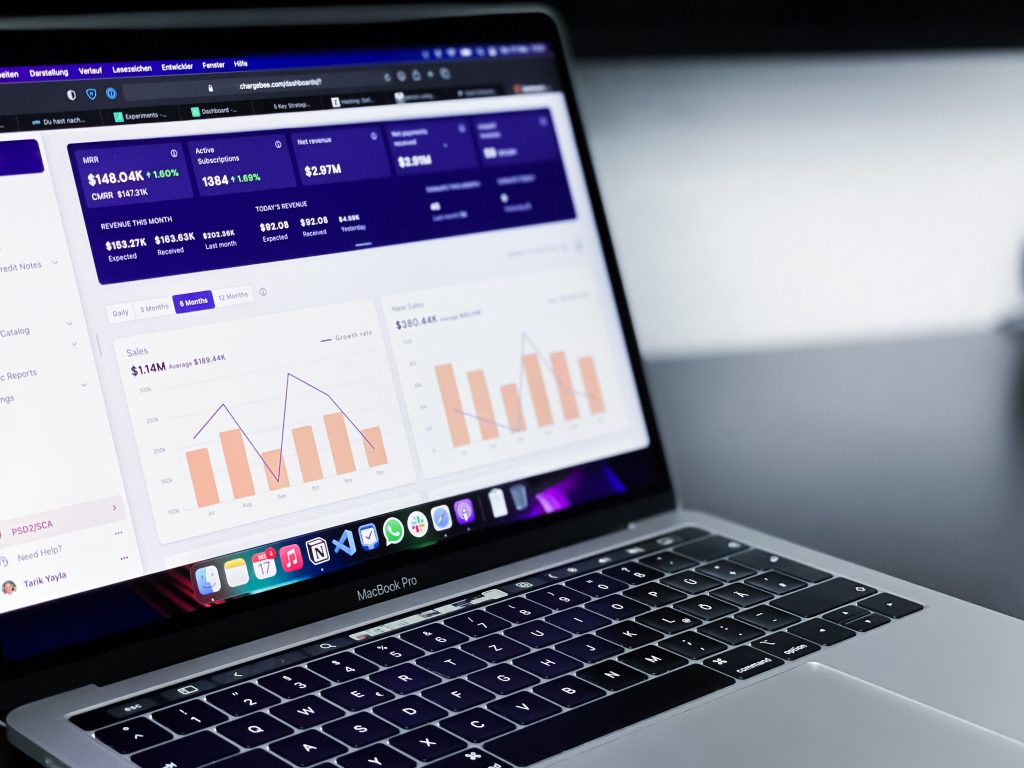Keeping Your Finger on the Pulse of the Project. The Importance of Project Management Metrics

Whether you are a small company or a large multi-national business, you’ll need project management metrics to assess your project’s performance. So what exactly are project management metrics? what are their types and benefits? We have all the answers to your questions below. So without any further delay let’s dive into the world of project metrics.
What Are Project Management Metrics?

Project management metrics are simply a set of measures that help gauge the performance of a project. You can think of project management metrics as key performance indicators or KPIs of a project. They not only help you track how well an initiative is doing but foresee problems, evaluate performance and make changes as needed.
Without such metrics, in place, it can be difficult to judge if a project is providing any real benefits to business, whether it’s doing more harm than good and if any improvements can be made to it. It is incredibly important for businesses to analyze the implications of new initiatives they take up. You need to know how much a new project will cost you, set realistic goals for the team, and work towards them.
Project management metrics can help a business in all these facets. Moreover, they can be crucial in determining where there is room for improvement so the right tweaks are made in time for keeping a project afloat.
You’ll see that having metrics for project management in place will also help you measure your team performance as well as individual performance and see how well everyone is doing in their own areas with the help of certain key performance indicators.
Why Are Project Management Metrics Important?
Project management metrics are incredibly important in more ways than you can imagine. They can help make the management process a lot easier. Moreover, they can help quantify a project’s performance and evaluate the effectiveness of a new campaign.
Measuring a project’s performance against certain pre-defined indicators helps reduce vagueness, brings clarity to the table, and paves the way for the success of the project. If you are unsure how to do that a software development company in Denver that can help you out.
Those days are gone when decisions used to be made through the gut feeling and intuition of the top management. Now everything is based on data and backed by proper facts and research. Businesses cannot afford to lose out on profits stemming from irrational and miscalculated decisions. With the correct metrics, it is now much easier to make well-informed choices in a timely manner to keep the organization moving in the right direction.
Metrics for project management not only help businesses stay on the right path but also prove beneficial in predicting calamities that may harm the organization in the foreseeable future. With the right change in tactics, businesses can then take action to avoid such disasters and stay at par with the competition.
Benefits Of Using Project Management Metrics
There are many benefits of using project management metrics. Some of the important ones are listed below:
1. For tracking progress
One of the most important and primary benefits of project management metrics is that it helps track progress from start to finish. Businesses can stay informed about how well they are doing and stay focused on their goals.
2. Evaluating performance
Is the project’s performance exceeding projections or is it lagging behind? Metrics for project management can analyze performance against previously determined KPIs to ensure the project remains on track for success.
3. Recommending changes
Whether the performance of a project is up to the mark or not, there will be certain decisions that the business will need to make along the way. Changes during the course of the project can be minute or drastic but it’s important that we make the right changes at the right time. Thankfully these metrics can make the task simpler.
4. Analyzing productivity
Apart from other benefits project management metrics help analyze the productivity of a team or task force engaged in implementing a project or initiative. If they are meeting their KPIs, good, otherwise less challenging targets can be set or team members who are underperforming can be counseled or helped in order to improve their productivity.
5. Managing costs
Controlling costs is important and metrics can help businesses do just that. If costs are exceeding set limitations you can always bring them down to ensure everything is moving smoothly ahead without breaking the bank.
6. Identifying bottlenecks
They help businesses stay alert regarding any bottlenecks and roadblocks that can halt them from achieving their set goals.
Project Management Metrics Examples
There are various types of project management metrics. It is not necessary to use all of them for every project. Quite the contrary. You just have to pick the ones best suited for the type of project you are going to undertake. It is important to know the types of metrics there are in order to make the right choice. Hence, below is are some examples of common project management metrics that businesses use:
1. Cost variance
Cost variance is a statistical measure that compares the budget you have set for your project with the amount that is spent. Here, you need to make sure that your cost variance remains positive. A positive cost variance points to the fact that your project is well within the budget. However, a negative cost variance shows that the costs exceed the budget set for the project. Cost variance helps manage the costs of your project and control the amount you are spending.
2. ROI
You might have heard about ROI before. ROI stands for return on investment. It can be calculated by the formula given below:
ROI= Net Return on Investment/Cost of Investment × 100%
The return on investment is a measure of the value or benefits gained from a particular project relative to the cost of the project. Simply put it is a measure of the project’s profitability. It tells you how beneficial a project or initiative is for the business. A positive ROI means the project is profitable for the business. On the other hand, a negative ROI means the project is yielding a loss and is hence not a good investment (total costs exceed the total returns). The success of any project ultimately depends on its profitability and ROI. Therefore you must ensure your project is on track for a positive return on investment.
3. Actual cost
Actual cost is one of the most simple but important metrics of project management. It is the total cost of any project. To calculate the actual cost you simply have to add up all of the expenditures spent on the project. You can then compare this figure with your total gains to find out the total profit you have made throughout the lifespan of a project.
4. Productivity
The productivity of a project is a measure of its efficiency. It can be expressed by using a simple formula given below:
Productivity = Output / Input
It compares the total outputs with the total inputs of a project. In other words, it measures how much resources were spent on a project relative to the project’s gains. Ideally, you must target the highest level of efficiency possible. This means using the least amount of input to achieve the maximum amount of output. Productivity can give you a clear picture of how efficiently you are using your resources, therefore, making it a valuable metric to assess the performance of your project.
5. Budget
Whenever you start any project you must have a budget in mind. This defines how much you are willing to spend on your project in monetary terms. It can be a rough estimate of the costs a business predicts it will incur for making the project a success. The team tasked with implementing the project must ensure that the project stays within the budget. If the project goes over budget it is usually not a good sign. It shows some miscalculations were made or the project was inadequately executed. A project going over budget may also be due to improper planning.
Conclusion
Project management metrics are extremely important for the success of any project. They help track the performance of every initiative and ensure your team is on the correct path for the success of the business. Without using any metrics for project management it can be increasingly difficult to predict if the project is doing well or not.
Moreover, when the project is underway you need to make changes along the way. The project can quickly run into a dead-end if no adjustments are made. As a result, a business is at a risk of facing severe challenges leading to the imminent failure of the project.
So remember to have pre-decided project management metrics set in stone right at the beginning of your next software development project. They will help you massively in staying up to date with the latest trends, analytics, numbers, and figures so you can make tweaks accordingly and make your project all the more profitable. Metrics are super necessary for every project and can help you manage costs apart from many other benefits.

